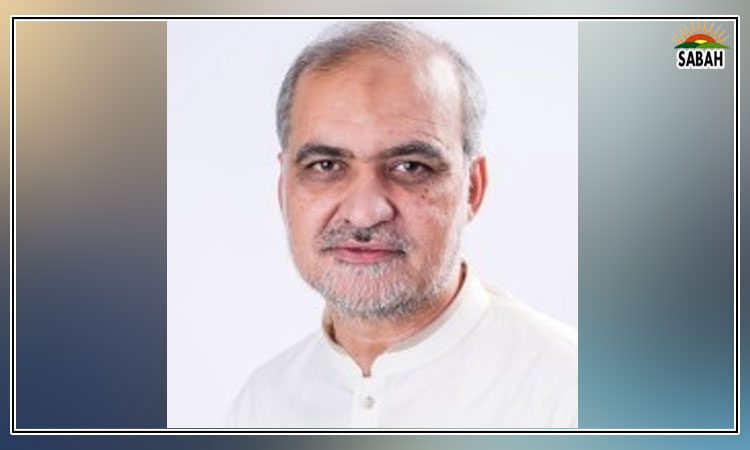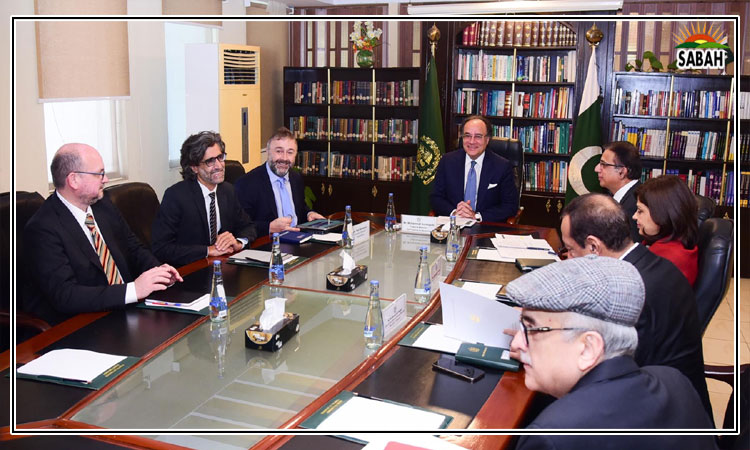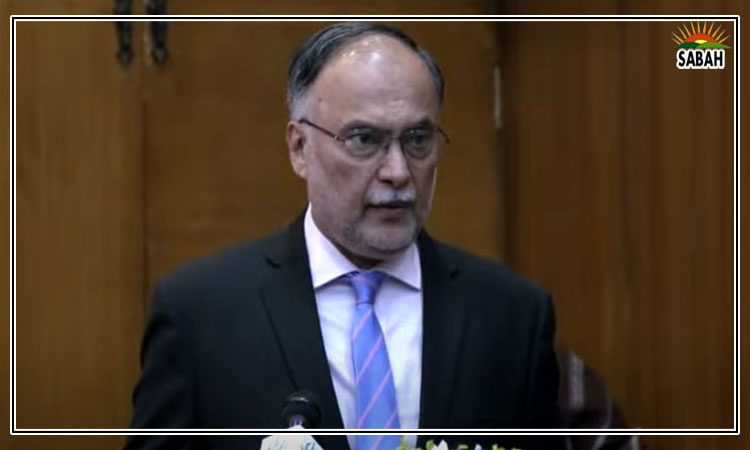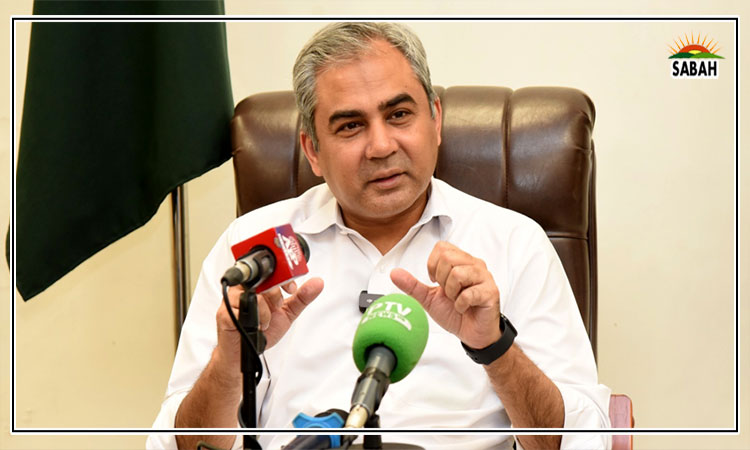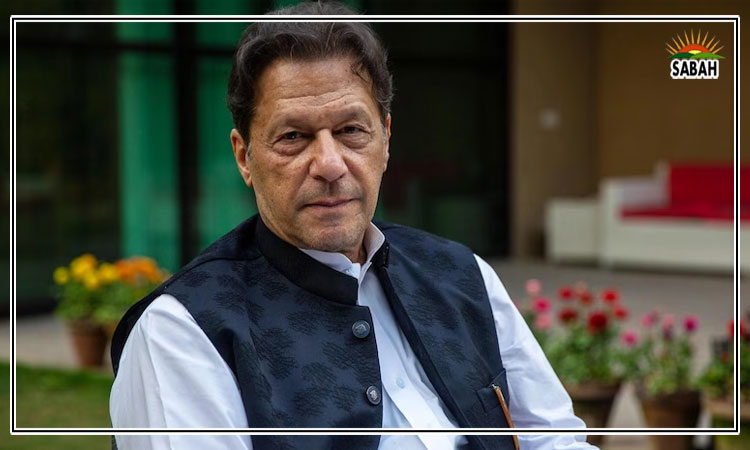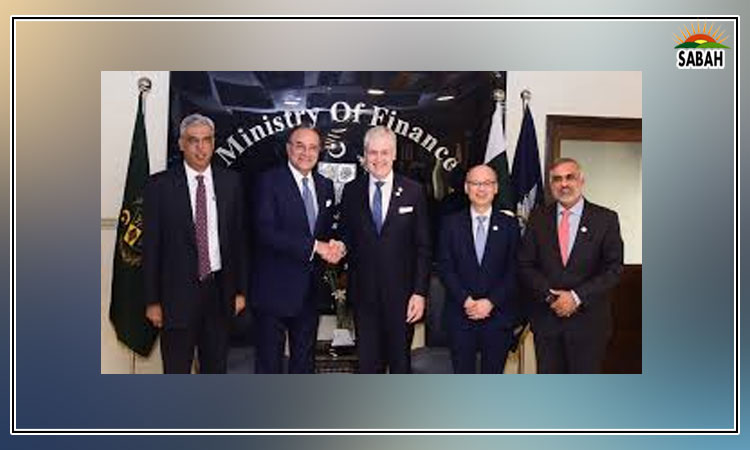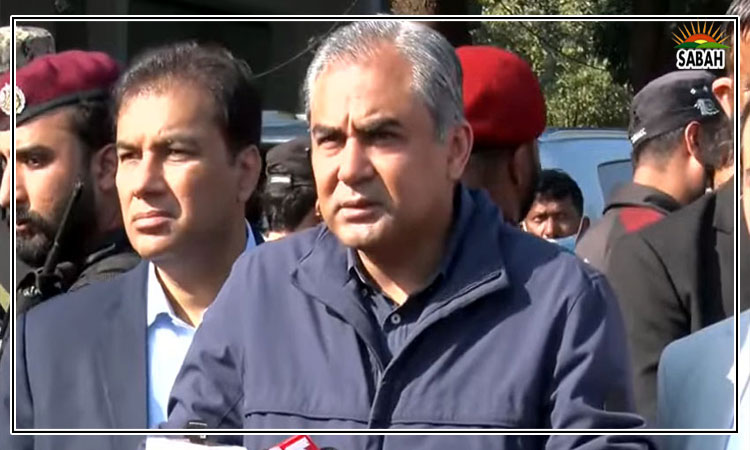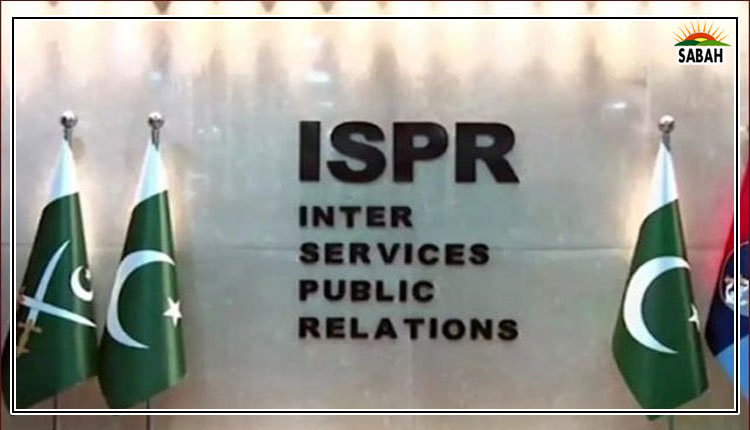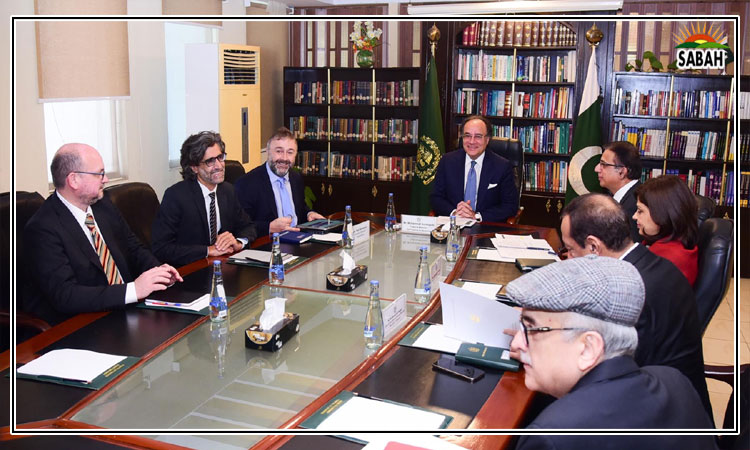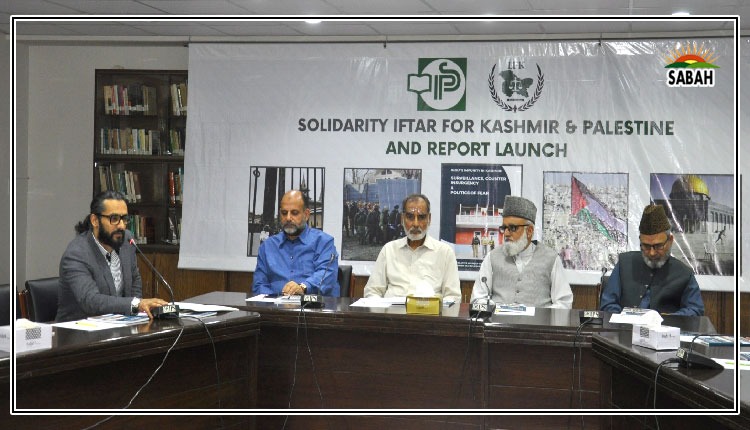Kashmiris have every right to resist Indian occupation, advocates Hurriyat Leadership at LFK-IPS solidarity event on Kashmir & Palestine
ISLAMABAD, April 19 (SABAH): Legal Forum for Kashmir (LFK) and the Institute of Policy Studies (IPS) jointly hosted a Solidarity Iftar for Kashmir and Palestine in Islamabad. The event brought together Hurriyat leaders, academia, activists, and subject experts from Indian Occupied Jammu and Kashmir (IOJK) and Pakistan to express solidarity with the oppressed people of Kashmir and Palestine.
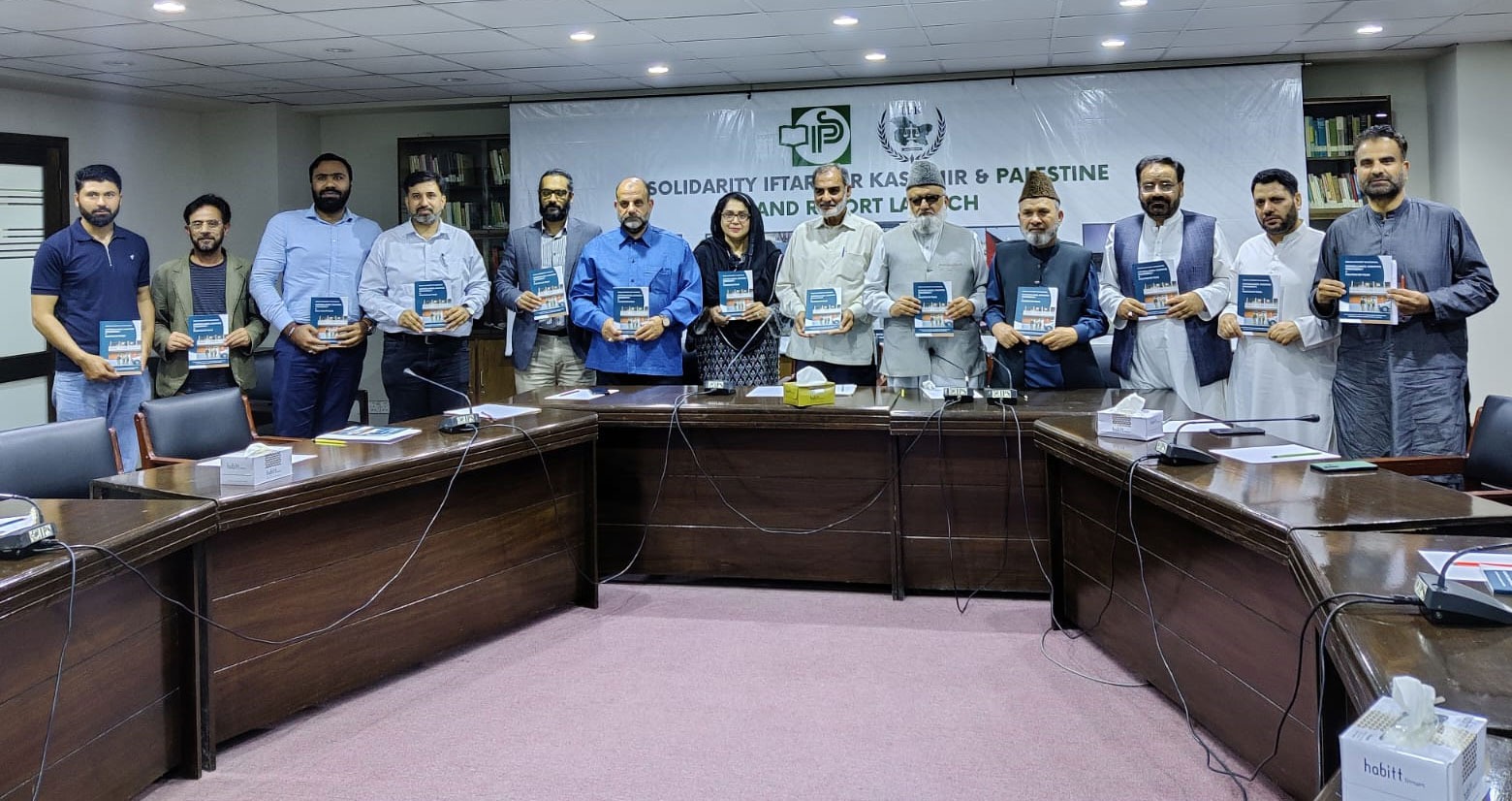
The Solidarity Iftar served as an opportunity to highlight the ongoing struggles and human rights violations faced by both the Kashmiri and Palestinian people. During the event, LFK launched a report titled India’s Impunity in Kashmir: Surveillance, Counter-Insurgency & Politics of Fear, which sheds light on the systematic use of surveillance, counter-insurgency measures, and political repression against the people of Kashmir.
The event was chaired by Dr. Khalid Rahman, Chairman IPS; and the panelists included Mehmood Ahmed Saghar, Senior Hurriyat leader and Convener APHC; Ghulam Muhammad Safi, Senior Hurriyat leader and Former Convener APHC; Abdur Rasheed Turabi, former Ameer Jamaat e Islami AJK; Prof.Dr. Amna Mahmood, Dean Faculty of Social Sciences IIUI.
Advocate Nasir Qadri, Executive Director LFK, moderated the event and delivered the opening remarks. He said that “Today’s event is an opportunity to discuss the current dynamics of occupation in Kashmir in the presence of Hurriyat leadership and IPS Kashmir Working Group. It is important to address the issues of human rights violations, the use of extra-judicial killings, enforced disappearances, and other forms of state-sponsored violence against the people of Kashmir. India’s replication of Israel’s surveillance and counter-insurgency operations in Kashmir cannot be ignored and must be condemned. We hope to have a productive discussion today and come up with solutions to alleviate the suffering of the people of Kashmir.”
Ghulam Muhammad Safi, Senior Hurriyat leader, and Former Convener APHC, while addressing the panel highlighted that “Israel and India continue to forcefully subjugate unarmed civilians in Palestine and Kashmir respectively. However, despite unabated oppression and state violence, the resilient people of Kashmir and Palestine continue to resist the occupation and disproportionate state violence.”
“Kashmiris have every right to resist as long as the occupation persists, and the international community should not equate the armed resistance of the occupied with the occupier’s indiscriminate and disproportionate use of force,” he added.
“Transnational solidarity campaigns must be initiated to expose the false façade of normalcy presented by the occupiers- India and Israel and bring to the fore the war crimes and ethnic cleansing being perpetrated in conjunction by the two states. India and Israel have been further emboldened by the inaction of the international community to curb their settler colonial programs and demographic engineering in the disputed territories.
It is imperative that the Kashmiri leadership, in cooperation with the global Kashmiri diaspora and friendly states, devise a counter-strategy to ensure that the legitimate resistance of Kashmiris is not vilified. We must work together to hold India and Israel accountable for their war crimes and crimes against humanity, and ensure that justice is served for the oppressed people of Kashmir and Palestine.”
Mehmood Ahmed Saghar, Senior Hurriyat leader and Convener APHC, in his address, asserted that “India is not working alone in Kashmir, it is being aided and assisted by foreignauthorities. The manifestation of India’s settler colonial program in Kashmir is an indication of the conjunction in Indian and Israelistrategies to eliminate the natives and ensure the settlements of non-natives.
In contrast to Palestine, Kashmiris have no identity and are not recognized internationally as the Palestinians. It is crucial to building a narrative that enables the recognition of Kashmiris at international forums. The need of the hour is to ensure that the voices of Kashmiris are heard and that their struggle for self-determination is acknowledged by the international community.
We must continue to highlight the atrocities being committed by India in Kashmir and expose the complicity of other states in this matter. The Kashmiri leadership, along with the global Kashmiri diaspora, must work together to build a strong and effective narrative that demands recognition for the legitimate aspirations of the people of Kashmir.”
Abdur Rasheed Turabi, former Ameer Jamaat e Islami AJK, underlined that “Despite Arab states backing off from the Palestinian movement, the Palestinians continued their struggle and resistance through collective efforts, including the formation of the Al-Quds International Forum, which is a cause-oriented amalgam of organizations. Similarly, the people of Kashmir must come together and form a base camp in AJK with adoption of a resolution similar to the objectives resolution in the constitution of Pakistan.
Palestinian academics, intelligentsia, and activists have always expressed solidarity with Kashmiris. It is important to note that the recognition of Israel by Pakistan can lead to a loss of transnational solidarity for the Kashmir cause. Therefore, we must continue to express solidarity with the Palestinian cause and work towards building a strong transnational movement that can effectively counter the settler colonial programs of India and Israel in Kashmir and Palestine.”
Prof. Dr. Amna Mahmood, Dean Faculty of Social Sciences IIUI, in her address at the event, underlined that the“Political instability in Pakistan and AJK has serious implications for the Kashmir issue. Unless Pakistan is politically stable, it can make no significant contribution to the Kashmir cause. Therefore, it is crucial to focus on long-term planning and strategizing and to explore how the natives of Kashmir (IOJK & AJK) particularly the youth can play a role in advocating the Kashmir cause.
To keep our house in order, we need to re-organize the movement and ensure that AJK becomes a symbol of development, political stability, and progress. Only then can we effectively advocate for the legitimate aspirations of the Kashmiri people and demand that their right to self-determination is ensured as enshrinedin the UN resolutions.
We must work together to strengthen our institutions and promote democratic values in Pakistan and AJK. This will enable us to effectively respond to the challenges posed by India’s settler colonial program in Kashmir and ensure that the voices of the Kashmiri people are heard at international fora.”
Dr. Khalid Rahman, Chairman IPS, while delivering the concluding remarks expounded on the changing dynamics of warfare. He highlighted that “The dynamics of warfare have undergone a significant change, and while physical warfare remains effective, the occupation of territories in modern times has become increasingly difficult, with a few exceptions like that of Palestine and Kashmir. The battle is no longer limited to the battlefield and has evolved into a battle of minds and hearts. To keep a state or house in order, we must focus on our strengths and own our weaknesses.
The present crisis in Pakistan is at its lowest in terms of political and economic stability. It is crucial for the intelligentsia and the political leadership to renew the strategy by focusing on our strengths and owning our weaknesses. Political instability and misgovernance are the root causes of the current crisis in Pakistan and AJK. However, the Kashmiris must not lose hope, as the day they lose hope, they will be devoid of the resistance struggle. We need to build a narrative that can be heard internationally, and work towards ensuring that the legitimate aspirations of the Kashmiri people are recognized and respected.”
The panelists unanimously raised concerns about the lack of International support in the ongoing just struggles of the Kashmiri and Palestinian people, thereby emphasizing the importance of transnational solidarity and support. The event provided an opportunity to bring together people from different fields and backgrounds to raise awareness about the struggles faced by Kashmiris and Palestinians. LFK and IPS urged the international community to take notice of the ongoing struggles of the oppressed people in Palestine and Kashmir andto support their efforts for justice and self-determination.
After the working session of the solidarity event, the LFK released a comprehensive report titled “India’s Impunity in Kashmir: Surveillance, Counter-Insurgency & Politics of Fear.” This report highlights the systematic use of surveillance, counter-insurgency tactics, and political repression by the Indian authorities against the people of Kashmir. The report has been supplemented with critical insights from lived experiences of Palestinian researchers who have contributed to developing a framework of research for drafting the report. Furthermore, the academic report provides a detailed analysis of the military occupation in Kashmir and serves as a valuable resource for researchers, scholars, human rights defenders,diplomats, and policymakers.


